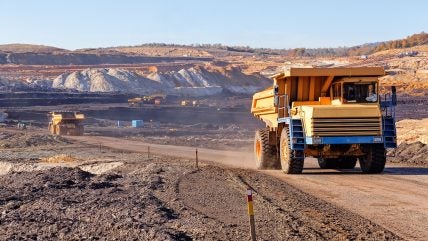Sign up for daily news updates from CleanTechnica on email. Or follow us on Google News!
Have you talked with someone at a family gathering or social function who simply doesn’t understand the climate crisis the way you do? Sometimes climate conversations seem like speaking another language, one in which both of you hold staunch positions that are untenable to the other.
You reach an impasse, and, instead of finding alternative ways to approach the subject, you silently agree to succumb to milquetoast discussions of sports or family.
As a writer, I know that when someone in my audience doesn’t quite get a point I’m trying to impart, I must revise so that I’m clear and digestible. It’s the same for having climate conversations: each of us holds points of view that may unintentionally come off as rigid or unassailable. Lots of times that’s due to our style of speaking.
If we want to infuse greater climate understanding with the people around us, we must be self-reflective about the way we talk — from how we design a thought to how we present arguments. Indeed, self-reflection may be the most powerful yet overlooked method of learning. Small changes to our presentational style may illuminate others — or at least give them some proverbial climate action food-for-thought.
 Chip in a few dollars a month to help support independent cleantech coverage that helps to accelerate the cleantech revolution!
Chip in a few dollars a month to help support independent cleantech coverage that helps to accelerate the cleantech revolution!
Reader George Harvey has challenged CleanTechnica to “become an advocate for the political stands required to save this nation, its people, and all living things on Earth. We must take a less destructive path to the future. I believe we must act now, for the sake of all humanity, to prevent Donald Trump from getting into office again.”
That’s quite the challenge, especially when the power of the fossil fuel industry is behind the Trump campaign curtain. “The people who are generating those emissions need to be aware of and pay the price for generating those emissions,” Darren Woods, chief executive of ExxonMobil, stated 4 months ago. He pointed at you and me as the culprits instead of Big Oil, which is responsible. Sure, we could advocate to ban fossil fuel advertising in the US, but that effort would take too much precious time. Instead, we need to learn how to have calm, thoughtful, and productive climate conversations with people who disagree about the existential crisis that the climate is presenting to us.
CleanTechnica’s Michael Barnard captures the 2024 US presidential candidates and their climate distinctions succinctly. “The Biden/Harris administration has delivered enormous movement on climate action, while Trump’s first term and promises are a sea of red, a tsunami of climate action failure. To be clear, that was true of most failures under Trump from any objective perspective, whether it was the economy, response to the global pandemic, international relations, or human rights.”
Here are some pointers for climate conversations to point us toward a healthier tomorrow.
A prudent question is one half of wisdom: We all want to feel good about ourselves, so you might be tempted to show off your vast climate knowledge and intelligence. Instead, consider how much more headway you’re likely to accomplish with a climate skeptic if you ask lots of questions, slowly but incrementally moving them to a keener understanding of climate nuances. Get your conversational partner to elaborate through your questions, as research indicates that most opponents feel underwhelmed by talk that contains fresh information — it’s called a “novelty penalty,” a general preference to hear about familiar experiences.
Take for example how the SEC requires transparency only around Scope 1 and 2 emissions while corporations create feel-good campaigns about their zero emission goals and progress — meanwhile, they’re lobbying against environmental policies to slow carbon emissions. To explain every Scope 1-2-3 emissions violation would shut down your listener. Instead, ask your conversational partner about their local, real-world experiences that reflect the different Scopes.
By asking lots of questions you’ll seem so much more likeable! You will become receptive to their worldviews as well as ready to appreciate their accumulated climate life experiences. Ask if their position has changed over the years once they learned that today 99% of scientists agree that climate change is happening and that humans are the primary cause. Don’t forget to ask followup questions whenever possible, digging into the how’s and why’s of a topic like methane is really natural gas, or climate vs. weather.
The most important thing in communication is hearing what isn’t said: While it may feel disingenuous to listen closely to someone who is spouting out climate misinformation, climate conversations need us to pay close attention. It’s a sign of respect. So, if you need to explain the difference between weather and climate (weather fluctuates from day to day, while climate is defined by long-term trends and weather averages), be attentive to your conversational partner’s body language, facial expressions, and tone of voice. You can paraphrase their responses, adding nuanced details and reframing their thesis so it’s clear to the both of you. Acknowledge your counterpart’s feelings, which can infuse an opportunity to rephrase an essential climate concept in a way that illuminates the bigger climate picture keenly.
It takes your full attention to introduce a topic like environmental justice (which recognizes that climate change isn’t just a physical problem — it’s an ethical one, too. The individuals and communities who will be most affected by climate change are the ones contributing the least to it). Try not to let distractions infiltrate from your climate conversations, either. Turn off your phone. Your strong attention solidifies the connection you’re sharing as you chat.
Share discourse time equally: If you’ve been successful in creating a conversational space in which both of you and your listener feel respected, then you have reached a place in which you can open up common ground. That means exploring deep thoughts and feelings. Of course, revealing thoughts and feelings in climate conversations means self-disclosure, which makes both of you vulnerable. You might admit your previous deficits in climate understandings — perhaps at one point you had hoped that plants and animals would be able to adapt to climate change, only to learn later on that the climate is changing too swiftly to allow for species to adapt.
When conducted with tact and discretion, self-disclosure increases connections among people across disparate social groups. Due to embracing a shared reality, self-disclosure is a really important element of climate conversations. Focus on topics that are equally familiar to both of you. Perhaps you’d talk about the vacation weather or storms of your childhood, sharing memories as common experiences on which to build. As you move onto less familiar climate crisis terrain, though, you must make sure that you provide enough details to avoid creating unnecessary informational gaps. Assess their prior knowledge and scaffold any new ideas you want to introduce. Keep self-checking for balance so that your discussion maintains a sense of comfort for you both.
Final Thoughts
The climate crisis is having economic, environmental, and physiological impacts on the Earth. During the Biden-Trump debacle debate, Trump insisted that his own 2016 administration had “the best environmental numbers ever” including “immaculate” water and air. Candidate Trump has also argued, “By most estimates under Biden’s electric vehicle mandate, 40% of all US auto jobs will disappear — think of this — in one or two years.” That’s a statistic that needs deconstructing, but to do requires a methodical approach to peeling back the layers of what it means to own an EV. Many people don’t know someone who drives all-electric, so that’s a tough slog. Attacking EVs is so common that no longer is logical reasoning necessary or even persuasive to some audiences, and EVs are in a whirlwind of symbolic partisanship and rancor.
That 40% stat is an example of something that needs systematic deconstruction through careful climate conversations if we are to empower others to stand up and protect the environment. Intentional language choices can make such breakthroughs possible.
Want to learn more about holding successful conversations in general? Check out The Laws of Connection: The Scientific Secrets of Building a Strong Social Network (2024) by David Robson.
Have a tip for CleanTechnica? Want to advertise? Want to suggest a guest for our CleanTech Talk podcast? Contact us here.
Latest CleanTechnica.TV Videos
CleanTechnica uses affiliate links. See our policy here.
CleanTechnica’s Comment Policy





